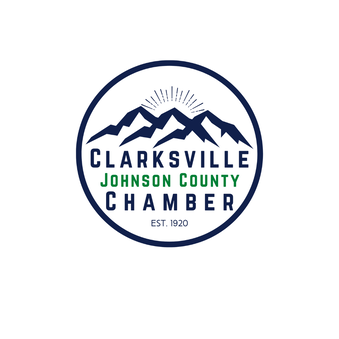|
“What is 4-H?” “How does 4H affect the Johnson County community?” “Why are kids involved in 4-H?” “What are the benefits of being involved in 4-H?” “How do I join a club?” “What all does 4-H require of me?” 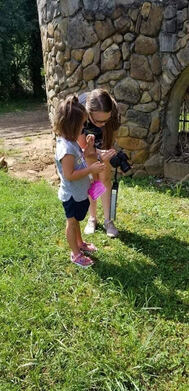 Old, young, and anywhere in between. 4-H offers opportunities to learn and grow constantly. Old, young, and anywhere in between. 4-H offers opportunities to learn and grow constantly. In the simplest form, Jeanie Robotham--the Johnson County Extension office agent for 4-H youth and development--says that when it comes to 4-H, “it’s a family thing.” 4-H is a nonprofit organization that has several groups/clubs present just in Johnson County. They are a youth development organization for young people that teaches them leadership and life skills that they will be able to take with them for the rest of their lives. When asked about the mission of 4-H, Jeanie said, “To make the best better of course. Like in our pledge, you know, it's for your club, your community, your country, and your world. We teach them life skills so that these kids (after this program) can go out and excel both in the workforce and the community. Outside of teaching life skills we also teach some college and career readiness to the kids. There is also the community side of things from our mission of citizenship through 4-H. We definitely want them to be a better citizen as well and be able to understand the county and state government and to have an active role in their community.”
0 Comments
“61 million adults in the United States live with a disability.” “The percentage of people living with disabilities is highest in the South.” “In 2020, 17.9 percent of persons with a disability were employed.” “Across all educational attainment groups, unemployment rates for persons with a disability were higher than those for persons without a disability.” “After age 21, adults with disabilities age out of the services and supports provided by law through the school system...According to parents, nearly 7 in 10 adults with disabilities live with their parents or guardian.” 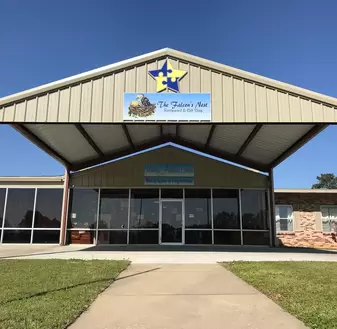 The M.A.C Industries facility, and it is the location of The Falcon's Nest. The M.A.C Industries facility, and it is the location of The Falcon's Nest. Statistics. All of these numbers and facts you see above are powerful statistics about the adults with disabilities in America, but behind these numbers and facts are people. People that are limited in how they can live out their lives because of the lack of resources and education that has been provided to them to live a “normal” life, that is often taken for granted. M.A.C. Industries is a non-profit organization in Clarksville, Arkansas that is a division of Forrester-Davis Development Center. At M.A.C. Industries, their staff and team work every single day to help disabled adults be able to move out of these statistics and facts and be able to earn their own money, live on their own, provide for themselves, cook for themselves, keep themselves healthy, and the list goes on. The mission that M.A.C. Industries revolves their entire organization around is “…to provide educational/habilitative services that enable developmentally disabled adults to pursue independence and a better quality life. Our vision is to maximize independence for disabled adults by providing vocational training in a successful, versatile business.” M.A.C. Industries has made such an impact on Johnson County since 1997 when their adult center was built. The impact they have been able to make has been supported and made possible by businesses like First Security Bank that offer their time and attention to help this organization reach as many people--and help as many people--as they do today. Since the creation of the adult center that is now M.A.C. Industries, they now provide so many different services all within their facility. The services they provide for these adults include (but are not limited to): education classes where they teach household skills so that they can learn to live independently, social community classes, a reading class, extracurricular classes like music and fitness, and the list goes on. 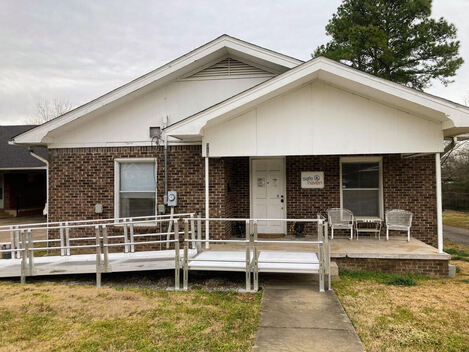 This is the Safe Haven Main office for drug and alcohol counseling, their classes, donation drop-off, etc. This is the Safe Haven Main office for drug and alcohol counseling, their classes, donation drop-off, etc. According to the United States Interagency Council on Homelessness, “Arkansas had an estimated 2,366 experiencing homelessness on any given day, as reported by Continuums of Care to the U.S. Department of Housing and Urban Development (HUD). Of that total, 101 were family households, 188 were Veterans, 262 were unaccompanied young adults (aged 18-24), and 514 were individuals experiencing chronic homelessness.” In Clarksville, Arkansas, homelessness looks a little different than the rest of the state, nonetheless, it still is a prominent issue. Homelessness in Clarksville, Arkansas isn’t a public affair, as it is typically individuals that fell victim to drug and/or alcohol addiction, unemployment, mental illness, poverty, etc., and don’t know where to turn for help. In 2019, Abigail and Sharon Garrett decided that the Clarksville and Johnson County communities needed help with their population of people that were struggling in multiple facets of their lives. They did what they could at the time and opened Safe Haven as a space to take in homeless women and help them in any way that they needed.  The dream that became a reality. The Safe Haven house for women where they live, do chores, and go through a faith-based rehabilitation program. The dream that became a reality. The Safe Haven house for women where they live, do chores, and go through a faith-based rehabilitation program. I was able to sit down with Abigail Garrett, who is the CEO of the outpatient division at Safe Haven. Garrett is the head counselor for the drug and alcohol counseling that they offer as one of their services. According to Garrett, her mission was clear in being drawn to addiction ministry when she moved to Arkansas. “And I just fell in love with how God does miracles. But, whenever somebody’s life is so broken in pieces, the miracles that God does to get them from ground zero are just amazing. So I just fell in love with watching that transformation. So I got into drug and alcohol counseling and switched my major to do so at Arkansas Tech,” Garrett explained. What all started with a dream from both Abigail and Sharon Garrett--and the other members of the Safe Haven board--of “empowering people to rebuild and restore their lives” has transformed into so much more than that. Now in 2022, Safe Haven is still focused on “bringing healing to Johnson County,” according to Abigail Garrett, through day classes for budgeting, parenting, etc., offering them a laptop so that they can search for a place to stay, build a resume, apply for a job, etc., drug and alcohol counseling, and they even have a home for women that allows them space to complete daily chores set for their everyday routine, do their homework for their healing process, participate in group therapy, and meet the program requirements. |
AuthorAfter her time at the University of the Ozarks, Abby Asencio graduated with a Bachelor of Arts in English. She now works as our Community Relations Director, continuing to connect our community. Archives
March 2023
Categories |
Let's talk
The Clarksville - Johnson County Chamber is your Business Resource & Visitor Center.
Let us know how we can help you.
Let us know how we can help you.
|
As a Main Street America Affiliate™, Clarksville - Johnson County Chamber of Commerce is part of a national network of more than 1,200 neighborhoods and communities who share both a commitment to creating high-quality places and to building stronger communities through preservation-based economic development.
|
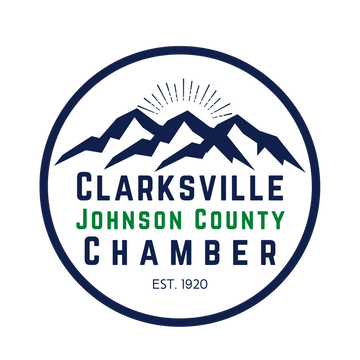
 RSS Feed
RSS Feed
